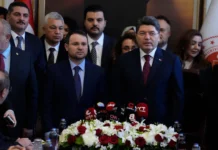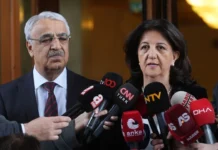Sweden’s Supreme Court on Monday blocked the extradition of a Turkish journalist in exile, a key demand by Ankara to ratify Stockholm’s NATO membership, Agence France-Presse reported.
There were “several hindrances” to sending back former editor-in-chief of the English-language Today’s Zaman daily, Bülent Keneş, who Turkey accuses of being involved in a 2016 attempt to topple President Recep Tayyip Erdoğan, the court said.
Some of the accusations against Keneş are not crimes in Sweden, which along with the political nature of the case and his refugee status in Sweden, rendered an extradition impossible, the court added.
“There is also a risk of persecution based on this person’s political beliefs. An extradition can thusly not take place,” judge Petter Asp said in a statement.
As a result, “the government… is not able to grant the extradition request.”
Keneş told AFP that he was “happy” by the decision and stressed the allegations against him were “fabricated by the Erdoğan regime.”
The exiled journalist is the only person Erdoğan has identified by name among dozens of people Ankara wants extradited in exchange for approving Sweden’s membership bid.
When pressed about “terrorists” he wants extradited from Sweden, Erdoğan told reporters during a joint press conference with Swedish Prime Minister Ulf Kristersson in early November in Ankara, that Keneş was on the list.
Ankara has blocked Sweden’s membership process, with the extradition of Kurdish refugees and other Turkish dissidents the main sticking point.
Stockholm has repeatedly stressed that its judiciary is independent and has the final say in extraditions.















